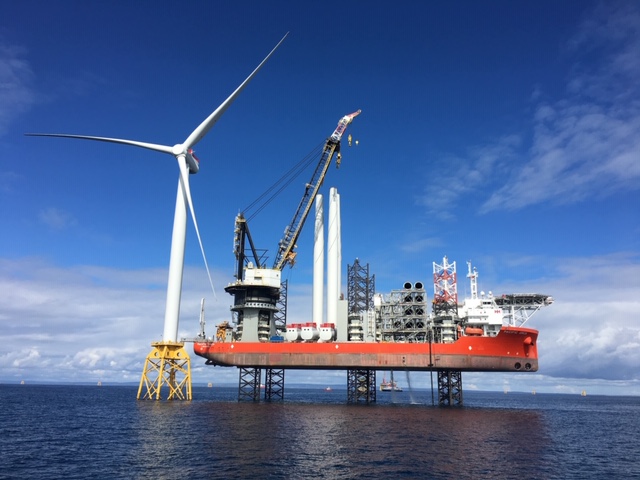International finance
European Investment Bank Pushes Sustainability, Backed by €500 million
Bond issue puts funding in place for water, flood protection projects

The Beatrice field is funded in part by loans tied to the EIB's green bond program, which is a model for the Sustainable Awareness Bonds issued last month.
Photo Courtesy of EIB
The first in what looks to be a series of bond transactions supporting sustainable infrastructure projects went on the market recently, raising €500 million ($578 million) in an eight-year issue by the European Investment Bank. The bonds will support long-term loans for projects in water, sanitation and flood control.
The European Investment Bank is the European Union’s Luxembourg-based nonprofit bank, and this bond issue, the first of what the EIB is calling Sustainability Awareness Bonds, follows a successful decade-long run of so-called “green bonds.” The Climate Awareness Bonds series, which first floated in 2007, that have funded to date 160 projects tied to green energy. Capitalization totals €18 billion ($US 20 billion) and counting. “These are sectors that are crucial in the sustainable development context,” EIB spokesman Richard Willis says.
The Luxembourg institution is the world’s largest non-sovereign bond issuer and largest lender for water investment. Investors, Willis says, include a usual coterie interested in do-good projects, but the sustainable awareness issue is drawing new investors wanting to invest in bonds tied to sustainability projects and concepts. The EIB’s green bond series, while focused more on energy, has supported many different kinds of projects, from the still-developing Beatrice wind farm off the coast of Wick in northern Scotland to affordable housing in southeastern Berlin.
The EIB will take the next year to allocate loan funding for projects tied to the bond, Willis says. The bank is also drawing up metrics and parameters for future bond-funded loans in health and education under the sustainable awareness bond rubric. An example of a water project, Willis says, would be clean water delivery to informal settlements in Niger and Burkina Faso, or the construction of water treatment plants in Colombo, Sri Lanka and Dacca, Bangladesh. The bank also funds projects in the EU, for example, issuing a €450 million ($520 million) loan to renovate and improve sewer systems in the Ruhr region of northwest Germany. Every year the EIB lends about €3 billion ($3.5 billion) in the water sector.
The sustainable awareness issues are meant to complement that and encourage other financial institutions to create a market for the bonds. “The importance of supporting European and global infrastructure—and in particular, the water infrastructure which was the focus of EIB’s inaugural sustainable awareness bond transaction—is key to all of our clients, who showed their commitment,” said Christopher Flensborg, head of climate and sustainable finance at Swedish bank SEB, as the bond launched.
These themed bonds have some history in the debt capital markets and are a popular if niche sector. In beginning October the World Bank, for instance, launched a $280 million sustainable development five-year bond issue.



